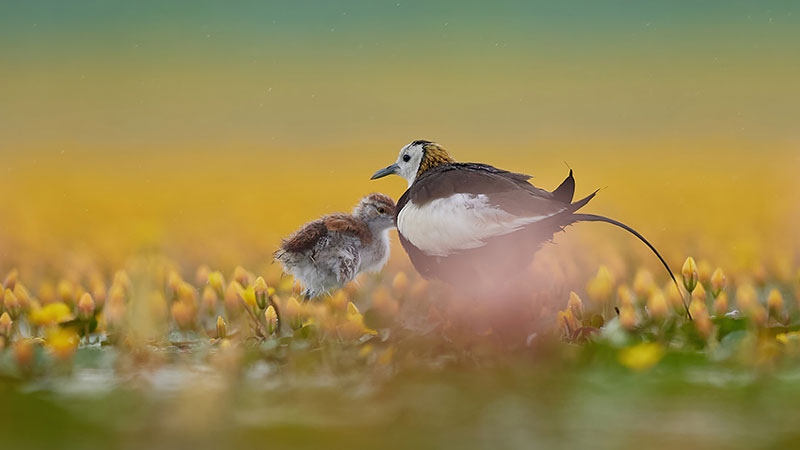Yearender: Fruitful cooperation in 2022 as China, Uganda celebrate six-decade ties
KAMPALA, Dec. 29 (Xinhua) -- The year 2022 has been fruitful for China-Uganda cooperation as the two countries celebrated 60 years of diplomatic ties.
A month into 2022, the China National Offshore Oil Corporation (CNOOC), together with France's TotalEnergies, announced the long-awaited 10-billion-U.S.-dollar Final Investment Decision, a blueprint plan to start commercial production of Uganda's oil. This was a signal of the deepening ties between Uganda and China, dating back to Oct. 18, 1962, just nine days after the east African country attained political independence from the United Kingdom.
At an event held at the national ceremonial ground, Kololo Independence Ground, Kampala, the capital of Uganda, on Feb. 1, Ugandan President Yoweri Museveni told the country and the world that once the first oil starts flowing in 2025, the revenues would be used to fast-track the country's economic development, especially in the transport and energy infrastructure sectors.
Economic experts from entities including Uganda's central bank, the Bank of Uganda, have argued that proper utilization of Uganda's oil revenue will fast-track its economic development, pulling millions out of poverty.
Months into 2022, drilling activities have started in the oil wells in the western part of the country on the shores of Lake Albert, shared with the eastern Democratic Republic of the Congo. Chinese drilling experts together with their Ugandan experts are already at Kingfisher oilfield, which is owned by CNOOC. Works are also ongoing at Tilenga oil fields which are owned by TotalEnergies. A 1,445-km crude oil pipeline, estimated to cost 3.55 billion dollars, will be constructed to transport the oil to the international market through the Tanzanian seaport of Tanga. Uganda's Ministry of Energy and Mineral Development estimates that the oil project will generate about 160,000 jobs besides provisions of goods and services.
The Chinese Embassy in Uganda this year also announced that as a follow-up of the nine cooperation programs announced at last year's Eighth Ministerial Conference of the Forum on China Africa Cooperation (FOCAC), it has together with the Ugandan government developed a pool of projects aimed at increasing household income. These projects include mushroom and bamboo growing at a commercial level, according to Zhang Lizhong, Chinese ambassador to Uganda.
Also as a follow-up on the eighth ministerial FOCAC meeting, China this year extended up to 98 percent of Ugandan goods to access the Chinese market at zero tariffs, starting Dec. 1. China pledged to increase the scope of products enjoying zero tariff treatment for the least developed countries that have diplomatic ties with it in a bid to reach 300 billion U.S. dollars in total imports from Africa in the next three years.
Uganda's Minister for Trade, Industry and Cooperatives Francis Mwebesa, while speaking at the public unveiling of the Special Preferential Tariff Treatment of Ugandan Exports to China held in Kampala on Nov. 18, urged the business community to take advantage of the Chinese market access.
"To export to China, it is the best market we can access, the private sector especially those in coffee should access the Chinese market," Mwebesa said.
China has since 2010 been increasing the number of Ugandan goods that can access its market tariff-free. According to Uganda's Ministry of Trade, Industry and Cooperative, China in 2013 increased the zero tariff line to 95 percent from 60 percent in 2010. In 2015, the zero tariff line was further increased to 97 percent.
The trade volume between the two countries in 2021 amounted to 1.07 billion dollars, registering a 28.5 percent increase, against the shock waves of the COVID-19 pandemic. By the end of 2020, China's direct investment in Uganda reached 710 million dollars and the investment is mainly focused on manufacturing, agriculture, mining, and logistics.
This year, China and Uganda also commemorated their 60th anniversary since the establishment of diplomatic ties. At a webinar held in September, organized by the Chinese People's Association for Friendship with Foreign Countries (CPAFFC), the Chinese Embassy in Uganda, and the Ugandan Embassy in China, speakers on both sides hailed the bilateral ties on international affairs.
Vice President of CPAFFC Jiang Jiang said China supported African countries to fight imperialism and colonialism. Africa also supported China's restoration of the lawful seat at the United Nations in 1971, signaling deep ties between the two sides.
"African brothers have withstood tremendous pressure, carried China to the United Nations, and always firmly supported China in safeguarding its legitimate rights and interests and core interests on international occasions," Jiang said.
Uganda's Ambassador to China Oliver Wonekha said China has been playing a central role in building transport and energy infrastructure in Uganda. China is financing the expansion of the country's Entebbe International Airport, the main gateway to the world. China also financed the construction of the Kampala-Entebbe expressway linking the national capital of Kampala to the airport. In the energy sector, China financed the construction of the Karuma Hydro Power Plant and Isimba Hydro Power Plant which helped address Uganda's energy deficit, a major bottleneck to the country's development, the ambassador said.
A report issued this month titled "Chinese Enterprises Social Responsibility Report 2022" showed that Chinese enterprises in Uganda are deepening the people-to-people ties between local and Chinese communities through their corporate social responsibility work.
The report, which sampled 21 out of 129 member enterprises of the Chinese Chamber of Commerce in Uganda, showed that the enterprises have supported local communities by providing medical camps, scholarships, knowledge and skills training, and renovation of schools, among others.
Photos
Related Stories
- Chinese enterprises in Uganda deepen people-to-people ties: report
- Uganda, China celebrate growing ties with dragon boat race
- Chinese, Ugandan presidents exchange congratulations on 60th anniversary of diplomatic ties
- China-aided project helps 100,000 people in rural Uganda access satellite TV
- Feature: China-aided satellite TV connects remote Ugandan villages to outside world
- Webinar held to celebrate the 60th anniversary of Uganda-China diplomatic ties
Copyright © 2022 People's Daily Online. All Rights Reserved.









